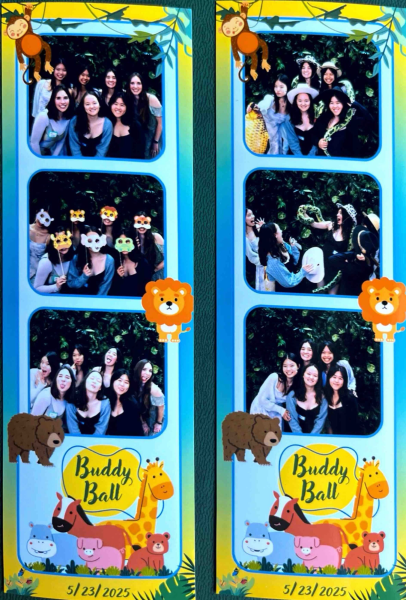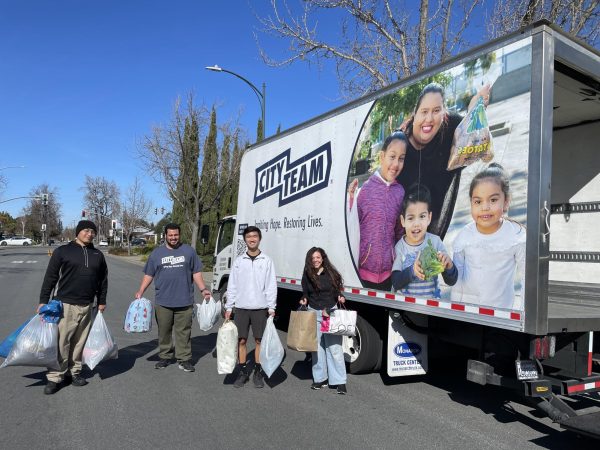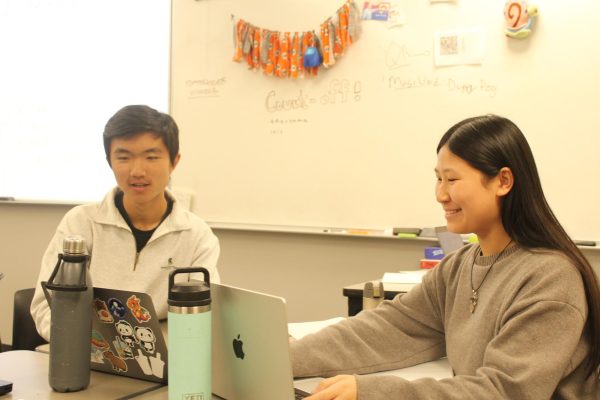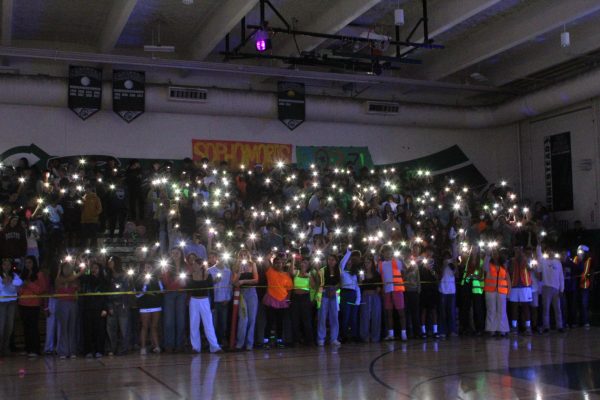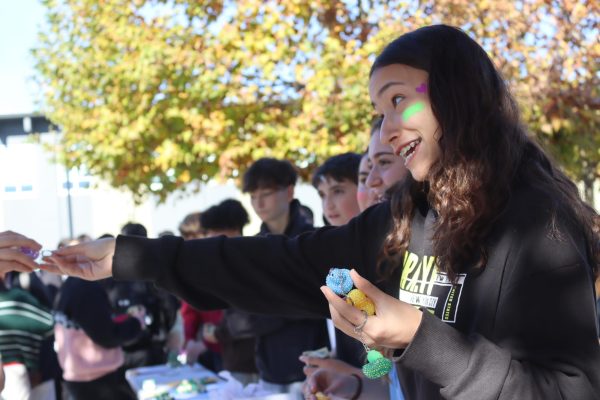Japanese exchange students visit HHS
As exchange students adapt to life in America, they learn the differences between American and Japanese schools
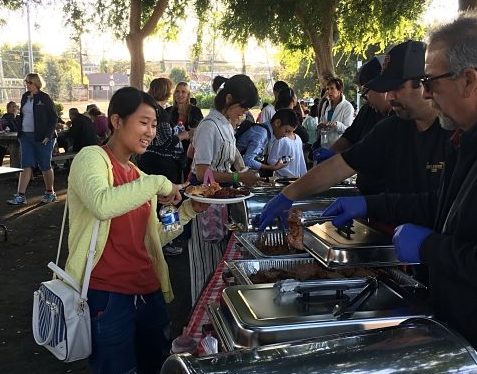
Photo by James Zhuang
The Sunnyvale Sister City Organization hosted a end of exchange program barque for families to have one last meal together
Four middle school students from Iizuka, Japan traveled to the United States and shadowed HHS hosts as part of an annual exchange program organized by the Sunnyvale Sister City Association (SSCA).
The Japanese students lived with host families from Aug. 22 to 24 and went to school at HHS for three days while attending classes such as AP calculus BC, AP English Literature and leadership. Seniors Zoe Manzano, Clara Samaniego, Gabriel Rosado and Nicole Delano served as hosts.
For many of the exchange students, it was their first time in America.
“At first, I was excited, and then I was surprised at how different it is,” exchange student Nene Onizuka said. “They don’t take off shoes in America . . . people are so friendly, and it’s easy to make friends.”
One of the biggest surprises for Onizuka was that people eat outside for lunch, which is a big deal because in Japan they always eat in classrooms. She said she was also not used to the amount of people in classrooms and at school.
SSCA set up the exchange to help both the Sunnyvale and Iizuka communities by promoting global interactions and introducing the communities to greater diversity, according to its website. The program was inspired by SSCA president Mark Kato’s own experiences visiting America and seeing its diverse culture and unique opportunities.
“When I was 27, I had a chance to come here for three weeks, and my life was completely changed,” Kato said. “So I wanted to give a similar kind of experience to [the] younger generation, to Sunnyvale kids and also Japanese kids.”
Through their time at HHS, the Japanese students gained new approaches to life and an experience similar to Kato’s.
“I will try to be more open with other friends and make more acquaintances on campus because I’m kind of shy,” Onizuka said.
Organizers of the event also viewed similar changes in the students.
“In general, the Japanese… [are a ] very shy [culture]. We are not trained to communicate with somebody really different,” Akiko Inoue, an event director at SSCA, said. “But this program open[s] them up to speak up so that’s … something to gain.”
The program’s effects expand further than to just the Japanese exchange students. HHS students who hosted them felt positively impacted and gained new insights on Japanese culture as well.
“It’s pretty eye opening because our cultures are so different, I feel pretty uncultured because one night she brought open her calligraphy set and I just didn’t have anything to exchange,” Onizuka’s host Zoe Manzano, said.
The exchange students’ time at HHS culminated in a barbeque. Host families and exchange students gathered on the final day at Braly Park to have one last feast together as a community. At the barbeque, families enjoyed outdoor activities and socialized with one another.



